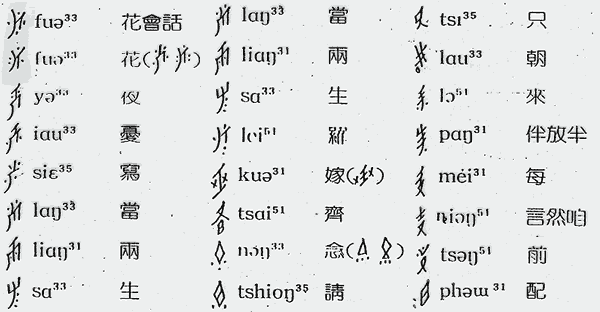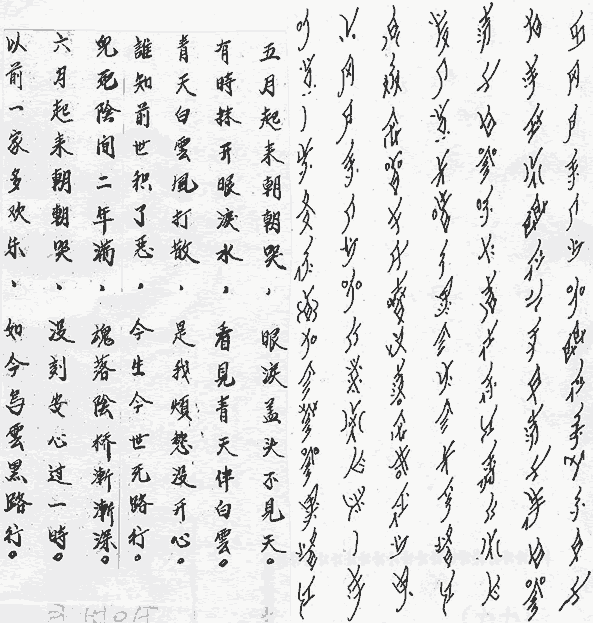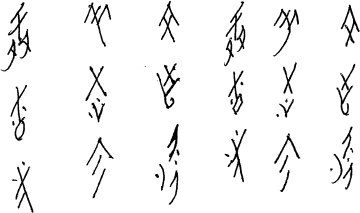(女书)

Nüshu is a syllabic script created and used exclusively by women in Jiangyong
Prefecture, Hunan Province, China. The women were forbidden formal education for many
centuries and developed the Nüshu script in order to communicate with one another.
They embroidered the script into cloth and wrote it in books and on paper fans.
Nüshu was mainly used in the creation of San Chao Shu (三朝書) or "Third Day Missives", cloth-bound booklets created by mothers to give to their daughters upon their marriage, or by woman to give to their close female friends. The San Chao Shu contained songs written in the Nüshu script expressing hopes and sorrow, and was delivered on the third day after a woman's marriage.
The last proficient user of Nüshu, Yang Huanyi, died on 20th September 2004 at the age of 98. More details
Recently there has been a revival of interest in Nüshu and a number of women are studying it and using it again. More details
Notable features
- Type of writing system: syllabic
- Number of symbols: 600-700
- Direction of writing: vertical columns running from top to bottom and from right to left.
- Many Nüshu characters are based on Chinese characters, while some are modelled on embroidery stitches and designs.
- Nüshu characters represent pronunciation, unlike Chinese characters, which represent pronunciation and meaning.
- Nüshu was taught to women by their mothers or grandmothers.
Used to write
Xiangnan Tuhua (湘南土話) or 'Southern Hunanese Tuhua', a variety of Chinese spoken in the Xiao and Yongming River region of northern Jiangyong County in Hunan. Speakers of this language call it Dong language [tifɯə], and it is unintelligible with the Xiang dialect of southern Hunan.A selection of Nüshu characters and their Chinese equivalents

Sample text in Nüshu with Chinese translation

Another Sample text in Nüshu

Translation
Beside a well,one does not thirst.
Beside a sister,
one does not despair.
Nüshu text by Professor Zhao Liming, via Tim Brookes at The Endangered Alphabets Project
Links
Information about Nüshuhttp://en.wikipedia.org/wiki/N%C3%BCshu_script
http://english.chinese.cn/chineseculture/article/2011-07/14/content_296740.htm
Some information about the Nüshu script
http://www.socialstudiesforkids.com/articles/currentevents/nushu1.htm
No comments:
Post a Comment
Note: Only a member of this blog may post a comment.